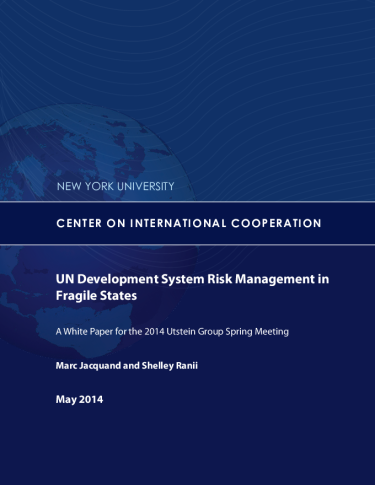More than 50% of the world’s poor are projected to live in conflict-affected and fragile states by 2015.
Country donors and the UN development system have and will continue to increasingly place an imperative on delivering transformative development results in complex post-conflict and fragile contexts. These are risky development situations, where the cost of implementation is high and the potential for project failure and financial losses is significant. In response, donors have placed an emphasis on greater risk tolerance, coupled with greater emphasis on risk mitigation, management, and sharing. However, challenges currently impede ‘smart’ risk management methods, many of which emerge from the donor domain and are primarily political in nature. As both the UN’s work in fragile states and the global appetite for improved risk management practices are on the rise, now is a critical time for donors to engage with each other as well as their UN counterparts.
This paper begins by defining the context in which UN agencies are developing and implementing risk management approaches in fragile states. This context is one of operational complexity on the ground and confusion at the policy level, where definitions and understandings of risk management remain fragmented. The paper also provides an overview of many UN agency risk management practices, making the point that current challenges do not result from a lack of policies and instruments. In fact, many agencies have undertaken vast efforts to develop or upgrade their risk management ‘toolbox’. Finally, the paper also highlights additional proposals that donors and the UN may wish to explore jointly to raise the overall quality of risk management discussions and solutions.


